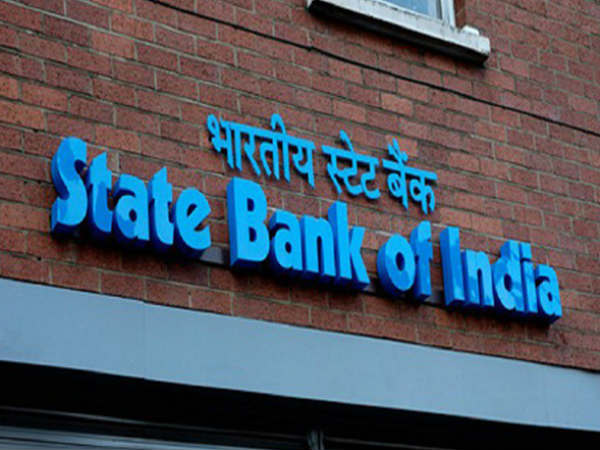Types of SBI salary account
SBI provides eight different types of salary account packages to appeal to the individual needs of organisations according to (sbi.co.in):
Corporate Salary Package (CSP): Employees of corporate institutions, including service organisations such as hospitals, hotels, and transport companies, can benefit from Salary Accounts under the CSP. The eligibility for Package Variants is determined by Net Monthly Salary such as PLATINUM: Above Rs 1,00,000/-, DIAMOND: Above Rs 50,000/- and up to Rs 1,00,000/-, GOLD: above Rs 25,000/- and up to Rs 50,000/-, SILVER: Between Rs 10,000/- and up to Rs 25,000/-.
Central Government Salary Package (CGSP): Employees of Ministries and Departments under the Central Government, RBI and NABARD can apply for this account. Net Monthly Salary determines eligibility for Package Variants such as SILVER: Between Rs 10,000 and Rs 25,000/-, GOLD: Between Rs 25,000 and Rs 50,000/-, DIAMOND: Between Rs 50,000 and Rs 1,00,000/-, and PLATINUM: Above Rs 1,00,000/-.
State Government Salary Package (SGSP): Employees of the State Government and Union Territories, as well as permanent employees of Corporations/Boards, etc. in States and Union Territories, including teachers/professors of aided schools, colleges, and universities, are eligible for State Government Salary Accounts (SGSP). The package variants according to salary are SILVER: Between Rs 10,000/- and up to Rs 25,000/-, GOLD: Above Rs 25,000 and up to Rs 50,000/-, DIAMOND: Above Rs 50,000 and up to Rs 1,00,000/- and PLATINUM: Above Rs 1,00,000/-.
Railway Salary Package (RSP): RSP Salary Accounts are available to employees of Indian Railways, Kolkata Metro, Konkan Railway Corporation, Mumbai Metro, Delhi Metro Rail Corporation Ltd., and Bangalore Metro Rail Corporation. The variants according to one’s salary are SILVER: Between Rs 10,000/- and up to Rs 25,000/-, GOLD: Above Rs 25,000 and up to Rs50,000/-, DIAMOND: Above Rs 50,000 and up to Rs 1,00,000/- and PLATINUM: above Rs 1,00,000/-.
Defence Salary Package (DSP): Under the Defence Salary Package, employees of the Army, Navy, Air Force, Assam Rifles, Rashtriya Rifles (RR), and GREF [Border Road Organisation (BRO)] can apply for DSP salary accounts. Retired employees can also open or upgrade their accounts to DSP – Pension and receive all the benefits with the exception of insurance, overdraft, and Xpress Credit. Gold, Diamond, and Platinum are three variations based on the rank of personnel in the Army, Navy, Air Force, Assam Rifles, RR, and GREF (Border Road Organisation). Officers are classified as Diamond or Platinum Variants, while PBORs are classified as Gold Variant.
Central Armed Police Salary Package (CAPSP): Salary Accounts are available to personnel of the Central Armed Police Forces (CAPFs) under the Central Armed Police Salary Package. Retired employees can also open or convert CAPSP accounts. Except for Insurance, Overdraft, and Xpress Credit, they will enjoy all the benefits of the account.
Police Salary Package (PSP): Employees of Central Police Organizations (other than Central Armed Police Forces and Railway Protection Force), Civil Police, Armed Police, and Reserve Police of all States, Police Forces of The Union Territories (Under The Control Of The Central Government), Government Railway Police (GRP) – (part of State Police Force) can use the Police Salary Package to get a salary account. There are a variety of package options based on the personnel designation such as SILVER : Net monthly salary RS. 10,000 to RS. 25,000, GOLD : Net monthly salary RS. 25,001 to RS. 50,000, DIAMOND: Net monthly salary RS. 50,001 to RS.1,00,000 & Officers of SP AND Higher Rank and PLATINUM: Net monthly salary above RS. 1,00,000 & officers of DIG and higher rank.
Indian Coast Guard Salary Package (ICGSP): Serving employees of the Indian Coast Guard who have SBI salary accounts can take advantage of the Indian Coast Guard Salary Package (ICGSP). Retired employees can also open or upgrade their accounts to ICGSP – Pension and receive all the benefits, with the exception of insurance, overdraft, and Xpress Credit. Based on the classification of the employees, there are three variants: Gold, Diamond, and Platinum.
Benefits of SBI salary package account
Customers can choose from a variety of rewards and services for each Salary Package account. The below are some of the advantages of our Salary Package Account according to (sbi.co.in).
- Zero Balance Account
- No Monthly Average Balance charges
- Employee Reimbursement Account
- Auto Sweep Facility
- Lifetime Free Debit Card with exclusive benefits
- Free unlimited transactions across any Banks’ ATMs
- Free Demand Draft
- Free Multi City Cheques
- Free NEFT/ RTGS
- Free SMS Alerts
- Complimentary Personal/ Air Accident Insurance
- Best Interest Rates on Personal Loans, Car Loans, Home Loans and Pension Loans
- Overdraft facility as per eligibility
- Concessions in Locker Charges as per eligibility
- Also comes with bundled SBI Credit Card
Documents required to open a salary account with SBI
The following documents are required for an individual to open a salary account according to (sbi.co.in).
- 2 Passport size photographs
- Proof of Identity and Address as per standard account opening process
- Proof of Employment
- Salary slip
- Joint Accounts: For joint accounts, Proof of Identity & Proof of Address are required for both the applicant and the joint applicant(s).
- Lesser known facts of SBI salary account
The below are some of the advantages of using an SBI salary account according to (sbi.co.in):
- All Salary Package customers have access to the Public Provident Fund (PPF). Remittance can be made by cash deposit at any SBI branch or by Internet Banking transfer.
- All Salary Package customers have access to the National Pension System (NPS). Remittances can be made by cash deposit at any SBI branch or by Internet Banking transfer.
- A Salary Package customer is entitled to an unlimited number of free ATM transactions each month at other banks’ ATMs.
- NEFT/RTGS facilities are free through all platforms for Diamond and Platinum variant customers, but only through online platforms for Silver and Gold variant customers.
- A Salary Package customer is entitled to an infinite number of free ATM transactions each month at SBG ATMs.
- A customer with a Salary Package can get an infinite number of free Drafts.
- Salary Package customers can receive a discount of up to 25%, depending on the account’s variant. Please contact your branch for more details.
- As of today, only pre-selected Diamond and Platinum variant customers have access to an overdraft via Internet Banking.
- All Salary Package Account holders receive complimentary Personal Accident Insurance (PAI) and Air Accident Insurance (AAI). The maximum coverage amount is determined by the Salary Package account’s type and variant.
- Accidental death insurance of up to Rs. 20 lakh is available to SBI salary account holders.
- According to the official SBI website SBI salary account holders are entitled to Air Accidental Insurance (Death) coverage of up to Rs. 30 lakh in the event of an air accident death.
- An SBI salary account holder is entitled to a 50% processing fee for any type of loan.
- SBI provides its salary account holders with up to a 25% concession on locker fees.
Note: For any assistance or concern related to your salary account, you can get in touch with SBI at 1800 425 3800/1800 11 22 11 (Toll Free)/ 080 26599990 or write to citu@sbi.co.in













